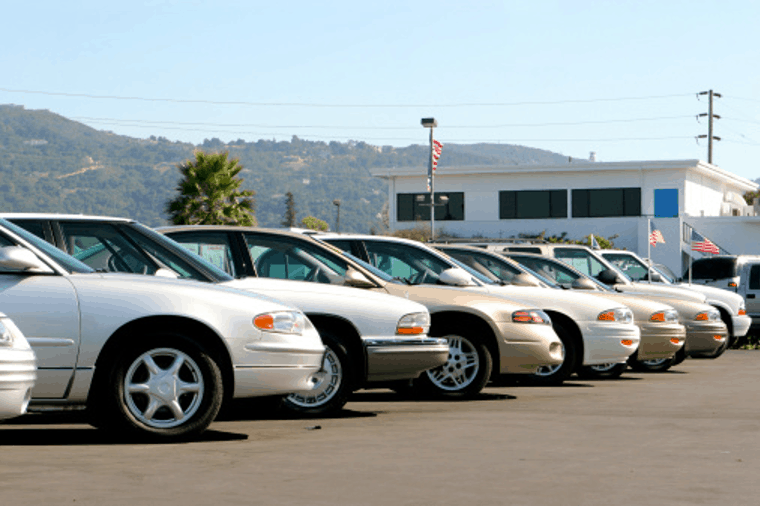
Deciding between buying a new or a used car can be quite a tedious process as both choices require a ton of research for you to be able to reach a final decision. Buying a used car is very different from buying a new one though, as there are a lot more variables to consider. Finding out every small detail regarding the vehicle’s history and its current condition is essential as you’d be surprised by what some of them have been through.
Repair Costs Come Around Quickly
The first thing to consider when shopping for anything that’s been previously owned is how soon it’s going to require some repairs. After purchasing a car, the last thing that you’re thinking of is repairs. Facing costly repairs within your first few weeks of owning a used car can cut into any money that you saved from not purchasing a new one. Having the car you’re interested in inspected by a mechanic before you finalize any deal is mandatory to avoid these initial repair costs.
The Resale Value
Used car salesmen often convince their customers that shaving off the depreciation value of a new car is a much better investment since the value lost can reach up to 30% in the first year. While that may be true, it’s also very unlikely to find a one-year-old used car for sale.
Different cars depreciate at different rates and while buying a three-year-old used car can save you some money, you should also be considering how long you’re going to keep it for. Researching the specific car you’re interested in and figuring the depreciation rates for it helps you figure out how much value you’re going to be losing in terms of resale value.
The Payment Method
There are two payment methods for purchasing any car; either pay in full or finance over time. These two methods highly depend on what you’re financially capable of, however, financing over time can be quite risky. Financing over time gives you the ability to skip out on the big down payment in the beginning, but then you get stuck with a high annual percentage rate (APR).
The rates that you get highly depend on your credit score and the amount that you put down upfront.
Signing a deal with a high APR can end up costing you a lot more than the amount you originally signed up for due to compound interest. Avoiding a big down payment may be a compelling offer at first, but once you figure out the total payment required over-time, you’ll definitely change your mind.
The Car’s History
The most common reason why people don’t like to go for used cars is because of their shady history. Some cars that have gone through major accidents have no visible record of the accident, as the owner is usually trying to hide it as best as possible so that they could sell it at a much higher value. Using a car’s vehicle identification number (VIN), customers can easily check the history of a car online.
Experienced vehicle data collectors over at https://www.carhistory.online/ recommend running a vehicle report using the VIN to figure out a car’s history and access all of its previous records. These reports help customers view the full history of a vehicle instead of just what they are told from the salesperson, which leads to making a much more informed decision.
Test Driving
You’re much more likely to spot any issues with a car when you’re driving it rather than when you’re just looking at it from the outside. People that are interested in purchasing a brand new car often test drive around 7 different cars before making their decision.
When it comes to used cars, around one in five people shy away from test driving the car they’re interested in. If you’re seriously considering purchasing a used car, take that bad boy for a ride as the feeling inside the car is bound to help you make your decision.
The Warranty
Before purchasing a vehicle, it’s important to ask about the warranty details in case something goes wrong. A warranty can be given in many different forms and paying close attention to the details mentioned in the warranty is highly recommended.
Looking up the different types of warranties before you head out to purchase a vehicle will help you out greatly. It’s also a bonus if the manufacturer’s warranty hasn’t expired yet as you can still reap the benefits of that coverage. Just make sure that you know the VIN and that you ask for a copy of the warranty documents beforehand.
The Negotiation Process
Used cars generally have a lot of flaws that can be easily spotted. A used car dealer convinces people to buy these flawed cars on a daily basis, so it’s fair to assume that they’re really good at their job. Negotiating a good price with these dealers can be an extremely difficult task, so preparing yourself with as much knowledge as you can and constantly reminding yourself that you can walk away is very important.
Your Preference
Every driver has their own list of preferences that they’re looking for in the cars that they check out. These preferences are usually what makes the car appealing to the driver and the lack of them can slowly make the car feel like it wasn’t worth the money. This is usually the case when buying a used car as the buyer doesn’t get to choose the color or experience that new car smell. Thinking twice about what you want for yourself will help you make a decision that you’ll enjoy far more than just settling for a used car at a decent price.

Buying a car can be a hectic process, but it’s definitely worth the effort. It’s always better to approach big investments with caution so that you ensure that you’re not rushing yourself into making a decision you’ll regret. While it’s recommended to always think twice before buying a used car, it’s also not entirely out of the question so don’t completely rule it out.
